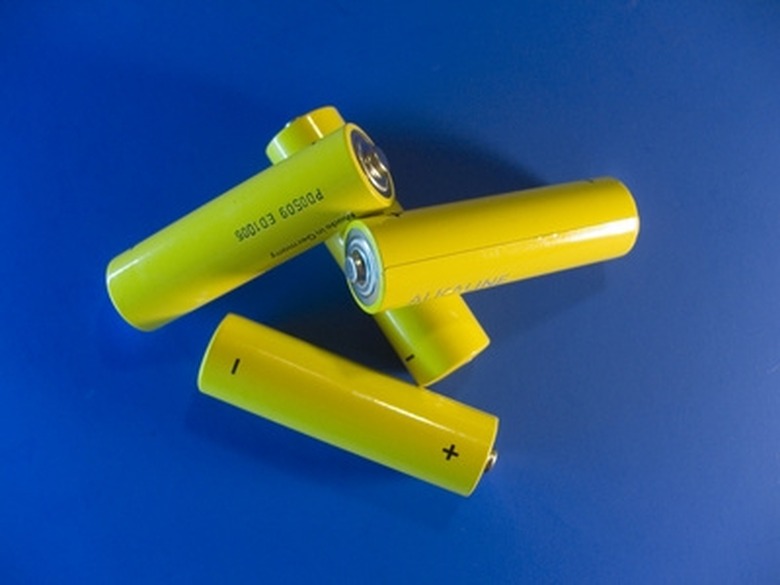Homemade Battery Tester
If you've got a drawer or bag full of batteries all mixed together, it's impossible to tell just by looking at them which ones are "good" and which ones are long past being useful. Buying a professional battery tester may not be in your budget, and the high school method of placing a battery on your tongue and seeing if you get shocked is not only painful, but also unreliable. The solution: Make a tester yourself.
Light Bulb Battery Tester
Light Bulb Battery Tester
Every battery tester, professional or homemade, requires a power source and a load to draw power. This load can be a light bulb. If you are testing small batteries, use a very small light bulb. Otherwise, the power generated by the battery won't be enough to light up the bulb and give a visible indication that it works.
To build a tester, you will need insulated alligator clip leads, a battery holder, your battery, a small light bulb and a socket to screw it into. Connect your light bulb to the battery holder using the alligator clips. When doing this, be sure that the positive clip lead is going into the positive terminal of the battery and the negative lead is going to the negative terminal. Then, one by one, place your batteries into the battery holder and see if the light bulb lights up. The intensity of the light will help you determine how much juice your batteries still have.
Motor Battery Tester
Motor Battery Tester
Homemade battery testers may be a better option than store-bought testers for some types of batteries, for example, nickel cadmium batteries. The most important component of your homemade tester is the load. Instead of using a light bulb, hook up a small hobby motor. The motor should be the smallest you can get because the batteries you are testing supply only low voltages. Hook up the battery to the motor in the same fashion as you would connect it to a light bulb. If the motor rotates, your battery is working.
If you own a multimeter or a voltmeter, you can measure the exact voltage of each battery when it is powering the motor. If you don't own one, the speed of the motor's movement can indicate the relative strengths of your batteries. The faster the motor rotates, the more power the battery is supplying.
References
Cite This Article
MLA
Garner, Wirnani. "Homemade Battery Tester" sciencing.com, https://www.sciencing.com/homemade-battery-tester-5534081/. 24 April 2017.
APA
Garner, Wirnani. (2017, April 24). Homemade Battery Tester. sciencing.com. Retrieved from https://www.sciencing.com/homemade-battery-tester-5534081/
Chicago
Garner, Wirnani. Homemade Battery Tester last modified March 24, 2022. https://www.sciencing.com/homemade-battery-tester-5534081/
